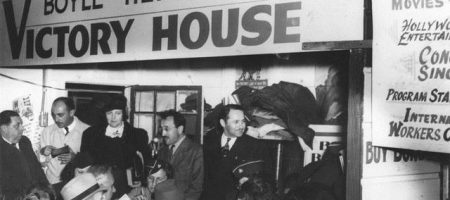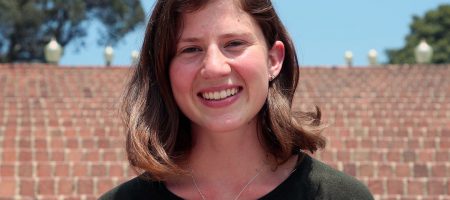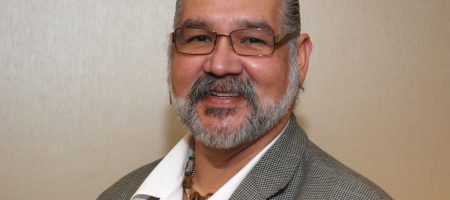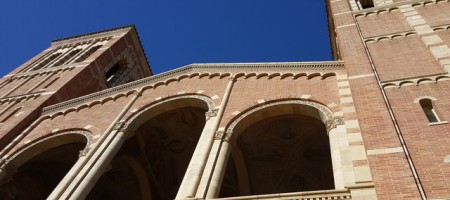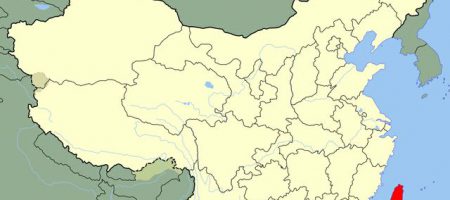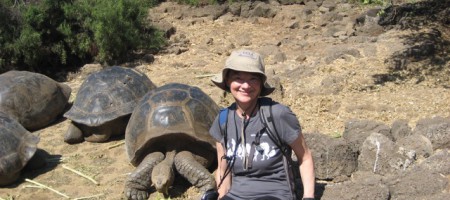Addressing Africa’s Pressing Challenges: Anthony and Jeanne Pritzker Family Foundation Gives $1 Million to UCLA’s Congo Basin Institute

The Congo Basin Institute creates a bridge between UCLA and Africa, which is expected to be home to 40% of the world’s population by the end of the century.
UCLA has received a $1 million donation from the Anthony & Jeanne Pritzker Family Foundation to support UCLA’s Congo Basin Institute.
The funds will advance the institute’s core mission of finding sustainable solutions to food and water insecurity, climate change, biodiversity loss, public health concerns and emerging diseases.
“The Anthony & Jeanne Pritzker Family Foundation’s generous gift will help establish UCLA as one of the world’s university leaders in developing solutions to some of Africa’s greatest challenges,” said Thomas Smith, co-director of the institute. “It also will aid in leveraging efforts such as UCLA’s Sustainable LA Grand Challenge on an international scale
Established in 2015 in Cameroon by UCLA and the International Institute for Tropical Agriculture, the Congo Basin Institute brings together faculty from the UCLA College and four professional schools, two UCLA research institutes and numerous academic departments, as well as leading thinkers from institutions in the U.S., Europe, Asia and Africa. Operating programs in five African countries, the institute creates a bridge between UCLA and Africa, which experts forecast will be home to 40% of the world’s population by the end of the century.
“Our foundation aims to enrich humanity not just for the present, but for generations to come,” said Tony Pritzker, the foundation’s president, and the chairman and CEO of Pritzker Private Capital. “By supporting UCLA’s Congo Basin Institute, we are investing in research that will help sustain the future of our planet.”
The gift furthers the foundation’s commitment to the Centennial Campaign for UCLA, which is scheduled to conclude in December 2019 during UCLA’s 100th anniversary year. Tony Pritzker is a co-chair of the campaign, and in 2018, the foundation gave $10 million to establish the UCLA Pritzker Center for Strengthening Children and Families, a hub for research, prevention and intervention efforts that works to support families so that fewer children are at risk of entering our nation’s child welfare system.
Funds from the gift will be used in part to support UCLA undergraduates and graduate students studying and conducting research in Africa, where they will investigate a variety of critical issues that affect the continent and the planet as a whole.
The Pritzkers’ gift was matched by a $1 million grant from the Global Challenges Research Fund’s Research and Innovation Fund, which is directed by the government of the United Kingdom.
“As UCLA celebrates its centennial and the incredible work accomplished over the last century, this forward-thinking investment in the Congo Basin Institute very much positions UCLA to be a leader in the study of climate change and biodiversity in Africa,” said Scott Waugh, UCLA’s former executive vice chancellor and provost. “The institute gives UCLA a permanent presence in one of the planet’s most biodiverse areas, allowing researchers the opportunity to pioneer solutions to critical challenges that affect the future of humanity. The Pritzker Foundation’s gift extends this important work.”
The Congo Basin Institute’s work aligns on an international scale with the goals of UCLA’s Sustainable LA Grand Challenge, a university-wide research initiative to develop clean energy, local water solutions, and preserve biodiversity in order to transition the Los Angeles region to 100 percent renewable energy, 100 percent local water and enhanced ecosystem health by 2050.
The Congo Basin Institute is supported by UCLA’s Institute of the Environment and Sustainability. It is co-led by UCLA and the International Institute for Tropical Agriculture, with more than a dozen institutional partners from Africa and around the world, including UC Davis and UC Riverside.
For more than a decade, the Anthony & Jeanne Pritzker Family Foundation has been investing in strengthening many of the unique institutions that define Los Angeles. The foundation aims to enrich the community not just for the present, but for generations to come, with a particular focus on medicine, higher education, the environment and the arts. In 2014, the foundation launched the Pritzker Foster Care Initiative to highlight its commitment to supporting transition-age foster youth and the families that care for them.



